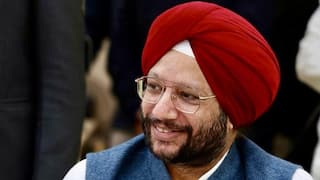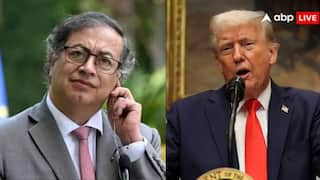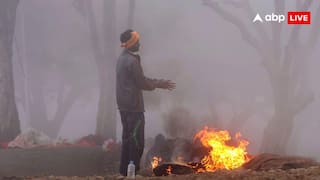Justin Trudeau Admits Canada Only Had 'Intel, Not Hard Proof' Of India's Role In Nijjar Killing
Canadian Prime Minister Justin Trudeau also said that India committed a "massive mistake and violated the country's sovereignty".

As the diplomatic tensions between India and Canada continue to escalate, Canadian Prime Minister Justin Trudeau on Wednesday, while testifying at Foreign Interference Commission, admitted that he "did not have evidence" to support the accusations of Indian government agents' involvement in the killing of Khalistani terrorist Hardeep Singh Nijjar. He also stated that India committed a "massive mistake and violated the country's sovereignty".
"India was holding G20 in September and everyone was in Delhi for the summit...We had the opportunity to make it an uncomfortable summit for India if we went public with the allegations..but we worked behind the scenes to get India to cooperate...Their ask was what evidence do you have...We said its within your agencies you should be engaging...But by that time we had intelligence not hard evidence or proof...We asked them to get together and asked them to cooperate with us..." Trudeau said.
Responding to a question on what led to his announcements in September 2023, Trudeau said: "I was apprised by intelligence services that there was credible intelligence that Indian govt agents were involved in Nijjar's killing... We had asked intelligence agencies to look into this...The initial assessment was gang-related criminal-related...No immediate international nexus...After hearing from South Asian community and members of parliament that the killing was likely connected to Indian govt...We asked intelligence agencies to look into it."
"In July and August I was briefed that Indian government agents were involved in the killing of a Canadian on Canadian soil...We had to take this extremely seriously...The violation of international rule of law...in a fellow democracy...was a massive mistake if India had done it and we had reasons to believe India did it," the Canadian PM added.
He further said that Canada had reached out to India in August and informed them that they must work on the matter together. "Let's do it responsibly in a way that India and Canada relations are not blown up."
Talking about his conversation with Prime Minister Narendra Modi, Trudeau said: "I had a conversation with PM Modi at G20 in Delhi where I sat down and shared about India's involvement. He responded that there are people in Canada that have outspoken against the Indian govt and he would like to see arrested... I explained that freedom of speech is a fundamental right in Canada..."
"It was clear that the Indian government's approach was to criticise us and the integrity of our democracy," he added.
The Canadian Prime Minister's statements came just days after the country expelled six Indian diplomats in Ottawa, including the High Commissioner. India also retaliated swiftly with the expulsion of Canadian diplomats. Trudeau had said that India had made a "fundamental error" thinking that it could support criminal activities against Canadians on Canadian soil.
"Whether it be murders or extortion or other violent acts, is absolutely unacceptable for any country, any democracy, that upholds the rule of law," he had said.
The diplomatic row worsened after Canada called Indian diplomats in Ottawa "persons of interest", alleging that they were involved in the killing of Khalistani terrorist Hardeep Singh Nijjar last September.
Canada's Foreign Affairs Minister Melanie Joly said in a statement on Monday that the decision to expel diplomats was taken with "great consideration and only after (Canadian police) gathered ample, clear and concrete evidence which identified six individuals as persons of interest in the Nijjar case."
Trudeau had also said that the Royal Canada Mounted Police had decided to come out and disclose that Indian diplomats allegedly collected information on Canadian citizens through "illegal and questionable means". He said that this information was further "fed to criminal organizations that would then take violent actions from extortion to murder against Canadians."
Reacting to this, India called the accusations levelled by Canada "preposterous" and announced that it was withdrawing the Indian officials expelled by Canadian government.
"There is a deliberate strategy of smearing India for political gains," India said in a statement on Monday. "The aspersions cast on (High Commissioner Sanjay Kumar Verma) are ludicrous and deserve to be treated with contempt."
India also said that Canada had not shared a "shred of evidence of India's involvement in Nijjar's killing" despite repeated requests. It also accused Trudeau of engaging in vote bank politics and not taking sufficient steps to tackle separatist elements on his country's soil.
ALSO READ: India Expels 6 Canadian Diplomats Amid Row Over Investigation Into Nijjar's Murder
Related Video
Uttarakhand News: Winter Chill Grips North India; Kedarnath Dham Covered in Snow
Top Headlines





































